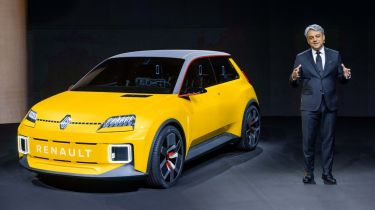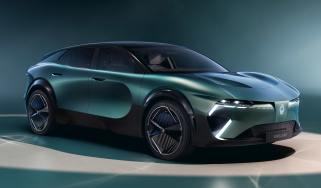Hydrogen and efuel cars can help save the European auto industry, says Renault boss
Renault boss, Luca de Meo’s strategy to save Europe’s car industry includes a bigger role for hydrogen

Renault’s senior European executive Luca de Meo has thrown his weight behind the growing calls for hydrogen to play a bigger role in the transition to net zero, alongside other green solutions such as eFuels.
In his open ‘letter to voters’ shared earlier in the week, De Meo highlighted the European Parliament’s role in forcing Europe’s car makers down an exclusively battery-powered path towards net zero - a position mirrored by politicians here in the UK.
De Meo has urged voters and politicians to back a return to the principle of technological and scientific neutrality. “In practical terms,” he says, “this means no longer dictating technological choices to industry. It means setting goals, but not how to get there”.
While there is some political focus on adopting hydrogen fuel cell power for heavy transport in Europe and the UK, there is almost no practical governmental support for adopting hydrogen-fuelled mobility more widely. De Meo proposes in his letter that the European Parliament should adopt a “technological neutrality for hydrogen”, and include small-scale mobility in supported projects.
“Hydrogen is particularly well suited to HGVs and buses and, in general, all vehicles covering very long distances,” he says. “For an equivalent level of performance, the battery required for hydrogen is smaller and therefore lighter. Renault’s new electric Master is one example: to achieve a real range of 500 kilometres, a dual battery-hydrogen fuel cell system (Hyvia type) would be half the weight (775 kg) of a conventional battery (1,427 kg).”
De Meo’s vision is for Europe to develop its own mix of favoured transport fuels, rather than blindly follow the Chinese who are already dominating in EVs. “The e-fuels solution, for example, is highly promising and should be further explored. Our proposal is that we should measure the impact of a car over its entire life cycle, from assembly to end-of-life and recycling, rather than focusing solely on energy consumption during use.” The Renault boss suggests this approach would challenge Europe’s engineers to increase competitiveness against China. “We would invent a European way,” he says.
Involving Europe’s largest 200 cities in the strategy to decarbonise the auto industry would also help speed the transition, according to de Meo, who wants them to have more of a say in traffic management schemes, local taxation and vehicle access to urban areas. “One approach would be to allow free access only to small electric or hydrogen-powered cars and vans, or cars with the most recent type approvals,” he says. “If all towns and cities adopt the same measures at the same time, this would automatically lead to a virtuous effect of scale for the industry, which would gain a bigger market.”
Click here to read Luca de Meo's open letter...
Find a car with the experts







